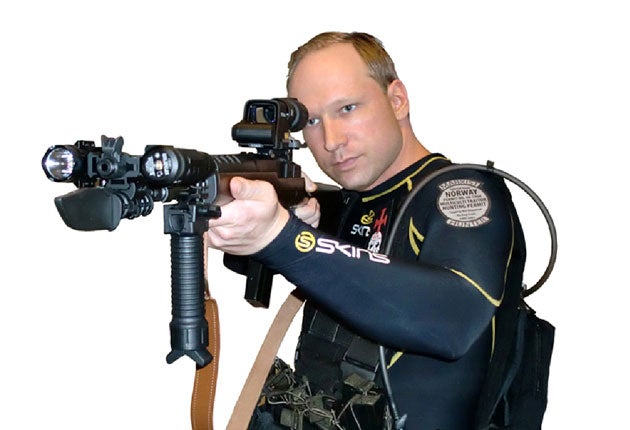Tony Paterson: The quest to find light in the darkness of Utoya island

Expunging the traces of mass murder is more difficult than might be imagined. More than a fortnight after Anders Breivik carried out his infamous 22 July massacre on the Norwegian holiday island of Utoya, police and firemen are still struggling to clear up the mess the Muslim- and Labour Party-hating gunman left in his wake.
Hundreds of spent metal cartridges ejected by the killer's frightening assortment of automatic weapons are proving one of the biggest headaches. Police say that in order to find and remove them, they have been forced to use metal detectors to comb the paths and beaches where Breivik gunned down his 69 adolescent victims in cold blood. Getting rid of absolutely all the cartridge cases has become an issue of paramount importance. "They are not the sort of thing people will want to stumble across on future visits to Utoya," a police spokesman was quoted as saying at the weekend.
Utoya island may be Norway's equivalent of Ground Zero, but Norway's ruling Labour Party is adamant that the island, which has served as a beacon of socialist hope for decades, must go on functioning as a holiday camp for young Labour members. Restoring Utoya has become Norway's categorical imperative. The idyllic wooded island, which lies some 600 yards offshore in the Tyrifjord about 35 miles north-west of Olso, was given to the Labour Party as a present by Norway's powerful trade unions shortly after the Second World War. Since then the island has hosted annual summer camps for hundreds of budding young socialists.
During the past few days the Norwegian press has been reprinting old black-and-white photographs of Utoya's former innocent and carefree past, as well as publishing shots of the young, guitar-playing and since legendary Gro Harlem Brundtland, Norway's first Labour Party woman prime minister, at one of the island's summer camps. Thorbjorn Jagland, another ex-prime minister, tenderly recalled how, like many other Labour politicians, he met his wife on the island.
Given the island's political and emotional significance, it is not surprising that Norway's business community has stepped in with generous offers of cash to help restore Utoya. Yet even though the money is pouring in, so far no one appears to have any idea how the island can adequately fulfil its role as the site of the country's worst act of violence since the Second World War, yet continue to function as a happy holiday island. Labour Party members say it is too early to say how the trauma of 22 July should be best dealt with. However, Eskil Pedersen, the party's youth-wing leader, remains defiant: "We will be holding summer camps on Utoya again," he declares to young members on his website. "I hope to see lots of you there," he adds.
Subscribe to Independent Premium to bookmark this article
Want to bookmark your favourite articles and stories to read or reference later? Start your Independent Premium subscription today.

Join our commenting forum
Join thought-provoking conversations, follow other Independent readers and see their replies